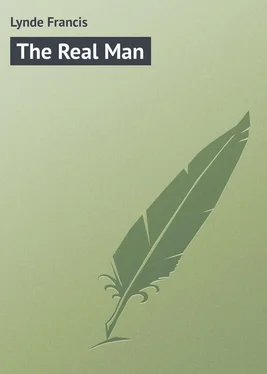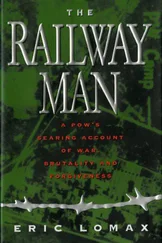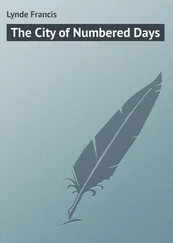Francis Lynde - The Real Man
Здесь есть возможность читать онлайн «Francis Lynde - The Real Man» — ознакомительный отрывок электронной книги совершенно бесплатно, а после прочтения отрывка купить полную версию. В некоторых случаях можно слушать аудио, скачать через торрент в формате fb2 и присутствует краткое содержание. Жанр: foreign_prose, на английском языке. Описание произведения, (предисловие) а так же отзывы посетителей доступны на портале библиотеки ЛибКат.
- Название:The Real Man
- Автор:
- Жанр:
- Год:неизвестен
- ISBN:нет данных
- Рейтинг книги:4 / 5. Голосов: 1
-
Избранное:Добавить в избранное
- Отзывы:
-
Ваша оценка:
- 80
- 1
- 2
- 3
- 4
- 5
The Real Man: краткое содержание, описание и аннотация
Предлагаем к чтению аннотацию, описание, краткое содержание или предисловие (зависит от того, что написал сам автор книги «The Real Man»). Если вы не нашли необходимую информацию о книге — напишите в комментариях, мы постараемся отыскать её.
The Real Man — читать онлайн ознакомительный отрывок
Ниже представлен текст книги, разбитый по страницам. Система сохранения места последней прочитанной страницы, позволяет с удобством читать онлайн бесплатно книгу «The Real Man», без необходимости каждый раз заново искать на чём Вы остановились. Поставьте закладку, и сможете в любой момент перейти на страницу, на которой закончили чтение.
Интервал:
Закладка:
"You're a pugnayshus young traithor, and I'm fair sick for to be doin' ye a fayvor," spluttered the big man, after the third knock-out. "What is ut ye'll be wantin'?"
Smith promptly named three things; breakfast directions, a morning paper, and a railroad man's advice as to the best means of getting forward on his journey. His new ally put him in the way of compassing all three, and when the westward faring was resumed – this time in the hollow interior of a huge steel smoke-stack loaded in sections on a pair of flat cars – he went eagerly through the newspaper. The thing he was looking for was there, under flaring headlines; a day late, to be sure, but that was doubtless owing to Lawrenceville's rather poor wire service.
Lawrenceville, May 15. – J. Montague Smith, cashier of the Lawrenceville Bank and Trust Company, and a leader in the Lawrenceville younger set, is to-day a fugitive from justice with a price on his head. At a late hour last night the watchman of the bank found President Dunham lying unconscious in front of his desk. Help was summoned, and Mr. Dunham, who was supposed to be suffering from some sudden attack of illness, was taken to his hotel. Later, it transpired that the president had been the victim of a murderous assault. Discovering upon his return to the city yesterday evening that the cashier had been using the bank's funds in an attempt to cover a stock speculation of his own, Dunham sent for Smith and charged him with the crime. Smith made an unprovoked and desperate assault upon his superior officer, beating him into insensibility and leaving him for dead. Since it is known that he did not board any of the night trains east or west, Smith is supposed to be in hiding somewhere in the vicinity of the city. A warrant is out, and a reward of $1,000 for his arrest and detention has been offered by the bank. It is not thought possible that he can escape. It was currently reported not long since that Smith was engaged to a prominent young society woman of Lawrenceville, but this has proved to be untrue.
Smith read the garbled news story with mingled thankfulness and rage; thankfulness because it told him that he was not a murderer, and rage, no less at Dunham's malignant ingenuity than at his own folly in setting the seal of finality upon the false accusation by running away. But the thing was done, and it could not be undone. Having put himself on the wrong side of the law, there was nothing for it now but a complete disappearance; exile, a change of identity, and an absolute severance with his past.
While he was folding the St. Louis newspaper and putting it into his pocket, he was wondering, half cynically, what Verda Richlander was thinking of him. Was it she, herself, who had told the newspaper people that there was nothing in the story of the engagement? That she would side with his accusers and the apparent, or at least uncontradicted, facts he could hardly doubt. There was no very strong reason why she should not, he told himself, rather bitterly. He had not tried to bind her to him in any shackling of sentiment. Quite the contrary, they had both agreed to accept the modern view that sentiment should be regarded as a mildly irruptive malady which runs, or should run, its course, like measles or chicken-pox, in early adolescence. That being the case, Miss Verda's leaf – like all other leaves in the book of his past – might be firmly pasted down and forgotten. As an outlaw with a price on his head he had other and vastly more important things to think about.
Twenty-four hours beyond this final decision he reached Kansas City, where there was a delay and some little diplomacy to be brought into play before he could convince a freight crew on the Union Pacific that he had to be carried, free of cost, to Denver. In the Colorado capital there was another halt and more trouble; but on the second day he found another empty box car and was once more moving westward, this time toward a definite destination.
During the Denver stop-over he had formulated his plan, such as it was. In a newspaper which he had picked up, he had lighted upon an advertisement calling for laborers to go over into the Timanyoni country to work on an irrigation project. By applying at the proper place he might have procured free transportation to the work, but there were two reasons why he did not apply. One was prudently cautionary and was based on the fear that he might be recognized. The other was less easily defined, but no less mandatory in the new scheme of things. The vagabonding had gotten into his blood, and he was minded to go on as he had begun, beating his way to the job like other members of the vagrant brotherhood.
IV
The High Hills
Train Number Seventeen, the Nevada through freight, was two hours late issuing from the western portal of Timanyoni Canyon. Through the early mountain-climbing hours of the night and the later flight across the Red Desert, the dusty, travel-grimed young fellow in the empty box car midway of the train had slept soundly, with the hard car floor for a bed and his folded coat for a pillow. But on the emergence of the train from the echoing canyon depths the sudden cessation of the crash and roar of the shut-in mountain passage awoke him and he got up to open the door and look out.
It was still no later than a lazy man's breakfast time, and the May morning was perfect, with a cobalt sky above and a fine tingling quality in the air to set the blood dancing in the veins. Over the top of the eastern range the sun was looking, level-rayed, into a parked valley bounded on all sides by high spurs and distant snow peaks. In its nearer reaches the valley was dotted with round hills, some of them bare, others dark green to their summits with forestings of mountain pine and fir. Now that it was out of the canyon, the train was skirting the foot of the southern boundary spur, the railroad track holding its level by heading the gulches and rounding the alternating promontories.
From the outer loopings of the curves, the young tramp at the car door had momentary glimpses of the Timanyoni, a mountain torrent in its canyon, and the swiftest of upland rivers even here where it had the valley in which to expand. A Copah switchman had told him that the railroad division town of Brewster lay at the end of the night's run, in a river valley beyond the eastern Timanyonis, and that the situation of the irrigation project which was advertising for laborers in the Denver newspapers was a few miles up the river from Brewster.
For reasons of his own, he was not anxious to make a daylight entry into the town itself. Sooner or later, of course, the scrutiny of curious eyes must be met, but there was no need of running to meet the risk. Not that the risk was very great. While he was killing time in the Copah yard the day before, waiting for a chance to board the night freight, he had picked up a bit of broken looking-glass and put it in his pocket. The picture it gave back when he took it out and looked into it was that of a husky young tramp with a stubble beard a week old, and on face and neck and hands the accumulated grime of two thousand miles of freight-train riding. Also, the week's wear and tear had been, if anything, harder on the clothes than on the man. His hat had been lost in one of the railroad-yard train-boardings and he had replaced it in Denver with a workman's cap. It was a part of the transformation, wrought and being wrought in him, that he was able to pocket the bit of looking-glass with a slow grin of satisfaction. When one is about to apply for a job as a laboring man it is well to look the part.
As the train swept along on its way down the grades the valley became more open and the prospect broadened. At one of the promontory roundings the box-car passenger had a glimpse of a shack-built construction camp on the river's margin some distance on ahead. A concrete dam was rising in sections out of the river, and dominating the dam and the shacks two steel towers, with a carrying cable stretched between them, formed the piers of the aerial spout conveyer for the placing of the material in the forms.
Читать дальшеИнтервал:
Закладка:
Похожие книги на «The Real Man»
Представляем Вашему вниманию похожие книги на «The Real Man» списком для выбора. Мы отобрали схожую по названию и смыслу литературу в надежде предоставить читателям больше вариантов отыскать новые, интересные, ещё непрочитанные произведения.
Обсуждение, отзывы о книге «The Real Man» и просто собственные мнения читателей. Оставьте ваши комментарии, напишите, что Вы думаете о произведении, его смысле или главных героях. Укажите что конкретно понравилось, а что нет, и почему Вы так считаете.












